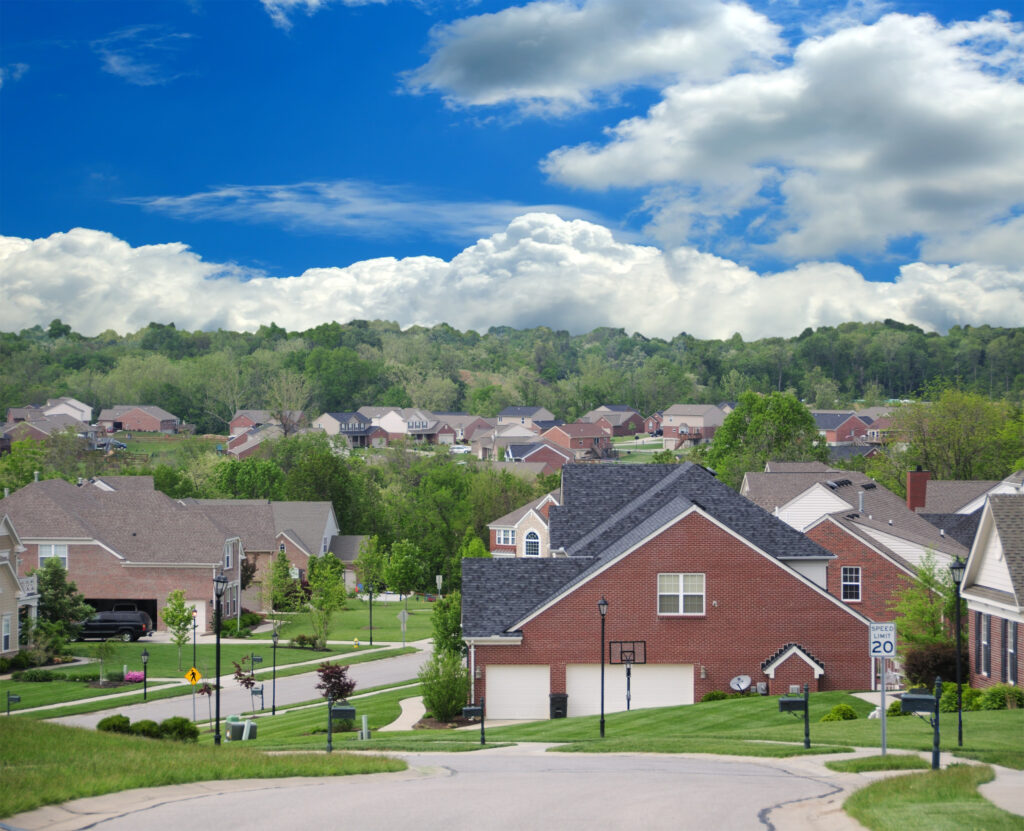Homeownership brings numerous joys and responsibilities, and one key aspect that often accompanies owning property within a community is dealing with a Homeowners Association (HOA).
This comprehensive guide aims to illuminate the often opaque world of HOAs, providing property owners with vital insights to navigate this aspect of living. Understanding HOAs is crucial before investing in a property, as it significantly impacts one’s daily life, financial commitments, and overall living experience.
Homeowners Association
A Homeowners Association (HOA) is a governing body established within a residential community or neighborhood. Think of it as the administrative backbone that ensures the community runs smoothly. Its primary purpose is to manage and uphold the rules and regulations outlined in the community’s covenants, conditions, and restrictions (CC&R).
An HOA is composed of homeowners within a particular neighborhood or housing development. It operates under bylaws and regulations created to maintain the community’s appearance, amenities, and standards. These rules are designed to preserve property values, create a cohesive neighborhood aesthetic, and foster a sense of community among residents.
The HOA holds several essential responsibilities. It oversees the enforcement of community rules, manages common areas (such as parks, pools, and landscaping), collects dues or fees from homeowners, and administers finances to cover maintenance costs and reserve funds. Additionally, the HOA often has the authority to levy fines or take legal action against homeowners who violate community regulations.
In essence, an HOA functions as a self-governing entity that aims to ensure a high quality of life for all residents by maintaining community standards, managing shared resources, and addressing common concerns.

Pros and Cons
Pros
1. Amenities and Maintenance: HOA communities often offer amenities like pools, gyms, parks, and maintained common areas. This shared upkeep can enhance property values and provide residents with convenient access to recreational facilities.
2. Consistent Aesthetics: HOAs enforce rules that maintain a cohesive aesthetic throughout the community, ensuring properties are well-kept and enhancing curb appeal, which can positively impact property resale values.
3. Community Engagement: HOA communities often foster a sense of community through organized events, committees, and shared interests, encouraging interaction among residents.
Cons
1. Rules and Restrictions: While regulations aim to maintain standards, they can sometimes be perceived as overly restrictive, impacting homeowners’ freedom regarding property modifications or exterior colors.
2. Fees and Assessments: HOA fees are a regular expense, and special assessments for unexpected costs can occasionally occur, which might strain the budgets of some homeowners.
3. Governance and Disputes: Disagreements with HOA decisions or management styles can lead to conflicts, and resolving these disputes may require time and diplomacy.
HOA Fees
HOA fees, also known as dues or assessments, are recurring payments collected by the Homeowners Association from residents within the community. These fees are essential for maintaining and managing various aspects of the neighborhood.
Calculation
The calculation of HOA fees varies based on multiple factors, including the community’s amenities, maintenance costs, insurance, reserves for future repairs, and administrative expenses. Typically, the fees are determined by dividing the total annual budget by the number of households within the community.
Coverage
HOA fees cover a wide array of expenses. They often include maintaining common areas such as landscaping, roads, community pools, and security services. Additionally, they might cover utilities for shared spaces and insurance for the community’s structures.
Property Maintenance and Upkeep
Duties
One of the primary responsibilities of an HOA is to oversee the maintenance and upkeep of common areas and shared elements within the community. This includes tasks such as landscaping, exterior building maintenance, road maintenance, and the upkeep of community amenities like swimming pools, playgrounds, or fitness centers.
Expectations
While the HOA takes on the responsibility for maintaining shared spaces, homeowners are typically expected to adhere to community standards for the upkeep of their individual properties. This often includes rules governing landscaping, exterior appearances, and other guidelines designed to maintain the overall aesthetic appeal of the neighborhood.
Interactions
Communication
1. Attend Meetings: Participating in HOA meetings is an excellent way to stay informed about community developments, voice concerns, and understand ongoing projects or issues.
2. Stay Informed: Keep up-to-date with HOA newsletters, emails, or official communications. Being aware of community rules, upcoming events, and any changes in policies is crucial.
3. Respectful Engagement: When communicating with the HOA board or management, maintain a respectful and constructive approach. Address concerns or queries diplomatically and within the established communication channels.

Disputes
1. Follow Protocols: If conflicts arise, refer to the HOA’s dispute resolution protocols outlined in the CC&Rs. These guidelines often provide a structured approach to resolving disagreements or issues.
2. Open Dialogue: Initiate conversations to resolve conflicts amicably. Sometimes, misunderstandings can be cleared up through open and respectful discussions.
3. Seek Mediation: If disputes persist, consider involving a mediator or an impartial third party to facilitate a resolution process.
Final Thoughts
In conclusion, navigating the realm of Homeowners Associations (HOAs) is a pivotal aspect of property ownership. Understanding the roles, responsibilities, and dynamics within an HOA-managed community is crucial for a harmonious living experience.
As you embark on this journey, consider partnering with AMC HOA Management Company. With our commitment to excellence, tailored solutions, and a team dedicated to enhancing community living, we stand ready to support your HOA’s needs.
Let us be your trusted ally in elevating your community’s standards and fostering an environment where residents thrive. Contact us today to discover how AMC can transform your HOA management experience into one marked by efficiency, transparency, and community satisfaction.




